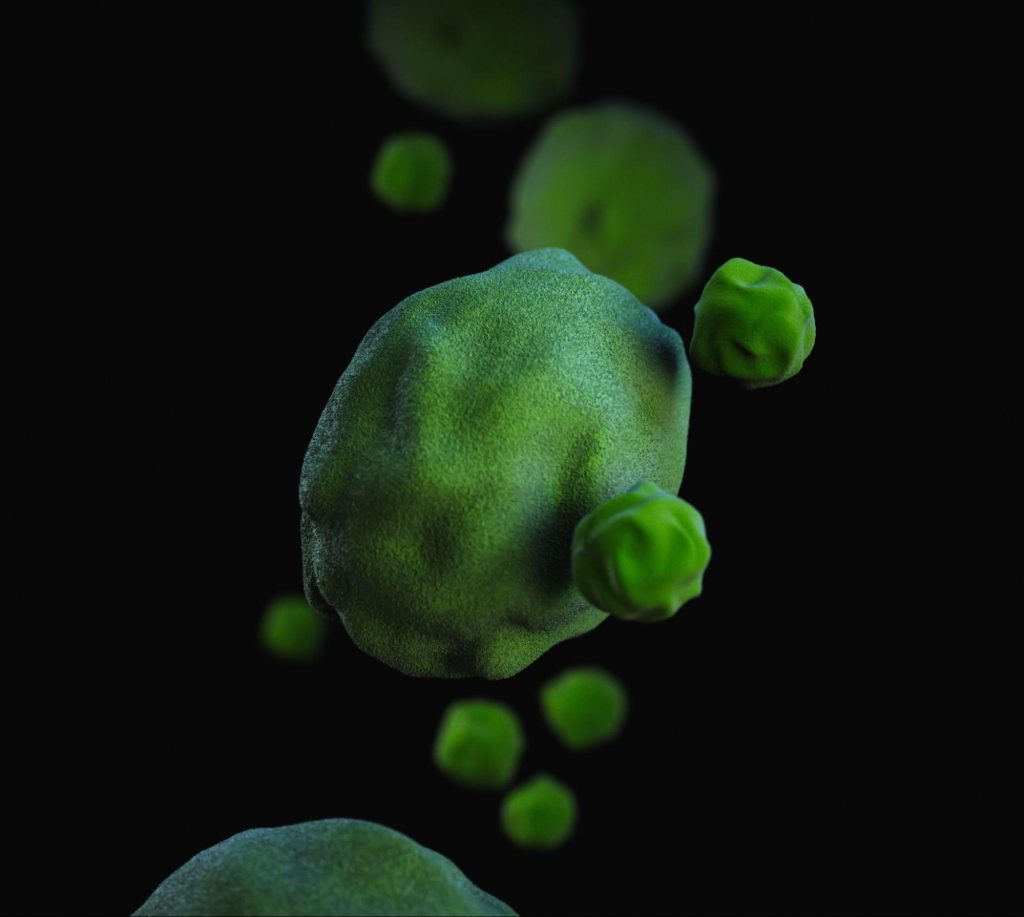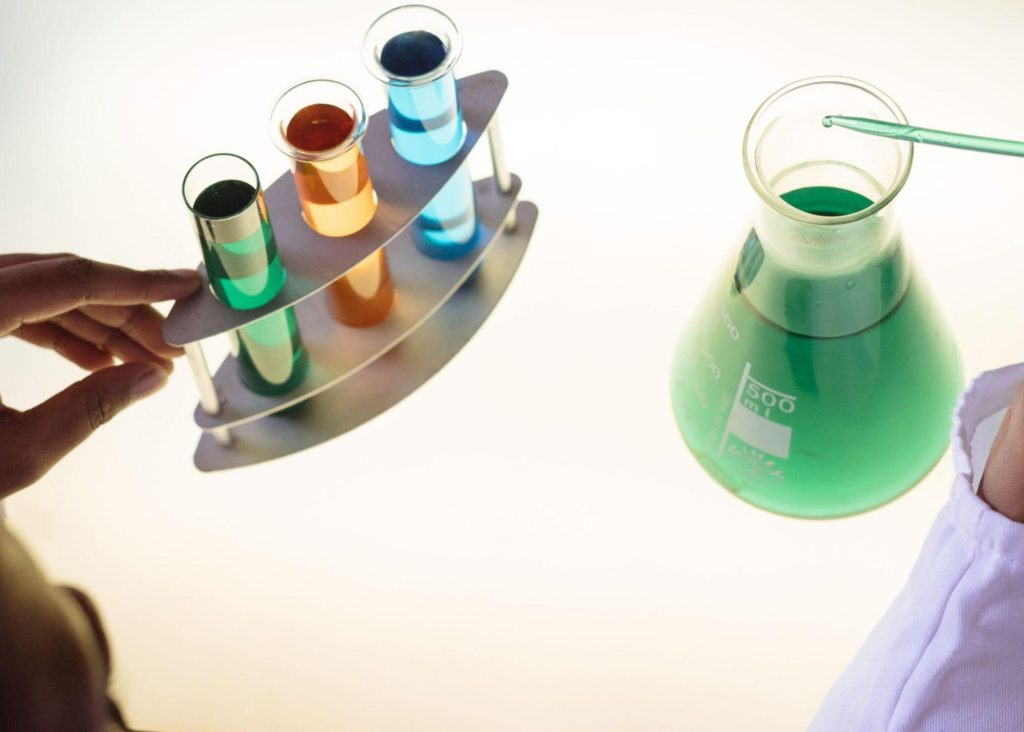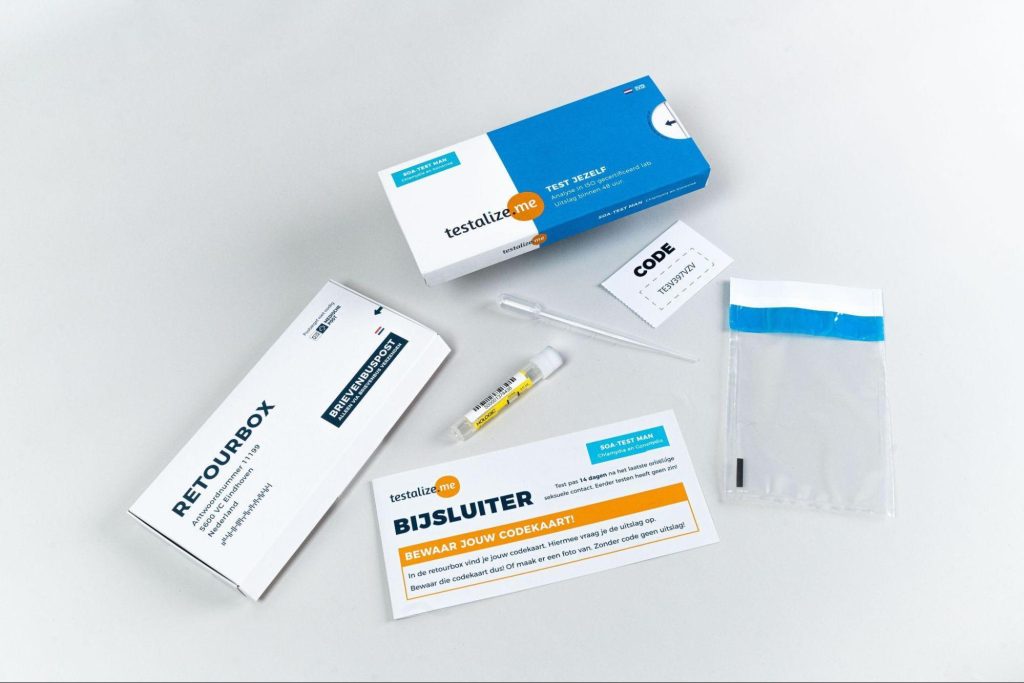Chlamydia is actually one of the most common sexually transmitted infections out there. In fact, according to the Centers for Disease Control and Prevention (CDC), there were over 1.8 million reported cases of chlamydia in the United States in 2019 alone!
Now, you might be wondering what exactly chlamydia is and why discussing how it’s contracted is so essential. Well, chlamydia is a bacterial infection caused by the bacteria Chlamydia trachomatis. It’s spread through sexual contact, including vaginal, anal, and oral sex.
If left untreated, chlamydia can cause some pretty serious long-term effects, like infertility and chronic pelvic pain. That’s why it’s crucial to discuss how chlamydia is contracted. By understanding how it can be transmitted, we can take steps to control its spreading.
This article is packed with valuable knowledge and practical tips to help you stay safe from chlamydia. So, let’s not waste any time and dive right into the discussion!
Contents
What Is Chlamydia?

Chlamydia is a sexually transmitted infection that is caused by the bacteria Chlamydia trachomatis. It is one of the most common sexually transmitted infections worldwide, and it can affect both men and women.
If left untreated, chlamydia can lead to severe health complications, including pelvic inflammatory disease (PID), infertility, and ectopic pregnancy. That’s why it’s crucial to take necessary measures to prevent chlamydia infection and get tested regularly if you’re sexually active.
Symptoms of chlamydia can vary and may include painful urination, abnormal vaginal or penile discharge, and abdominal pain. However, many people infected with chlamydia may not experience any symptoms at all.
Fortunately, chlamydia is easily treatable with antibiotics. However, finishing the entire course of antibiotics is important, even if your symptoms disappear before the medication is gone.
How Is Chlamydia Contracted?
Chlamydia is primarily spread through sexual contact. This can include vaginal, anal, or oral sex. The bacteria are transmitted from one person to another through bodily fluids, such as semen, vaginal fluids, and rectal secretions.
While chlamydia is primarily spread through sexual contact, there are a few ways that it can be contracted without sexual activity.
One way is through perinatal transmission, where a mother who has chlamydia can pass the infection to her newborn during delivery. This can cause serious health problems for the baby, including pneumonia and conjunctivitis.
Another way is through non-sexual skin-to-skin contact with an infected area. For example, if someone with chlamydia has an open sore or blister on their genitals and someone else touches that area, they could potentially contract the infection. However, this is much less common than sexual transmission.
Sexually active people are at the highest risk of contracting chlamydia. This includes both men and women and people of all sexual orientations. However, certain groups are more likely to get chlamydia than others. For example, young people between the ages of 15 and 24 are at the highest risk of contracting the infection.
Additionally, people with multiple sexual partners who do not use condoms consistently or have a history of other STIs are also at increased risk. If you suspect that you might have acquired chlamydia, it’s essential to get tested and treated as soon as possible.

Symptoms Of Chlamydia
Surprisingly, many people with chlamydia do not experience any symptoms, which is why regular testing is so important. However, if symptoms do occur, they can vary depending on the location of the infection.
In women, chlamydia can cause vaginal discharge, pain or bleeding during sex, and abdominal or pelvic pain. It can also cause pain or burning during urination and a frequent urge to urinate. Some women may also experience bleeding between periods or after sex.
In men, chlamydia can cause a clear or cloudy discharge from the penis, pain or burning during urination, and pain or swelling in the testicles. It can also cause rectal pain or discharge if the infection is spread through anal sex.
In both women and men, chlamydia can cause conjunctivitis (pink eye) if infected fluids come into contact with the eyes. It can also cause throat infections if infected fluids come into contact with the throat during oral sex.
It’s important to note that many of these symptoms can be caused by other conditions, so it’s important to get tested if you suspect that you may have chlamydia. Testing is usually done through a urine test or a swab of the affected area.
Failure to treat chlamydia can result in severe health issues. For women, it may result in the development of pelvic inflammatory disease (PID), which can cause infertility and chronic pelvic pain. In men, it can cause epididymitis, which can lead to infertility. It can also increase the risk of HIV transmission if the person is exposed to HIV.
It is crucial to quickly seek medical attention if you suspect you might have contracted chlamydia. Treatment usually involves a course of antibiotics, which can help clear the infection and prevent further health complications.
Furthermore, it is vital to refrain from engaging in sexual activity until the infection has been eradicated and to inform your sexual partners so that they can undergo testing and treatment.
What Preventive Measures Can You Take Against Chlamydia?
Chlamydia can be easily prevented by taking a few simple steps.

- Use Condoms
Consistently using condoms during sexual activity, whether vaginal, anal, or oral, is among the most efficient methods for preventing chlamydia. Condoms act as a barrier that prevents the exchange of bodily fluids, which is how chlamydia is transmitted. Make sure to use a new condom every time you have sex, and follow the instructions carefully to ensure they are used correctly.
- Limit Your Number of Sexual Partners:
Another way to reduce your risk of getting chlamydia is to limit the number of sexual partners you have. The more sexual partners you have, the higher the likelihood that you will come into contact with someone who has the infection. If you do have multiple sexual partners, make sure to use condoms consistently and get tested regularly for STIs.
- Get Tested Regularly
Regular testing for STIs, including chlamydia, is vital to protecting your sexual health. If you are sexually active, it’s recommended that you get tested for STIs at least once a year, even if you don’t have any symptoms. Testing is simple and painless and can be done at a clinic or doctor’s office.
- Practice Good Hygiene
Practicing good hygiene can also help prevent chlamydia. This includes washing your genitals with soap and warm water after sex and wiping from front to back after using the bathroom. It’s also important to avoid sharing towels or other personal items with others.
- Avoid Risky Sexual Behaviors
Engaging in risky sexual behaviors, such as having unprotected sex with multiple partners, can increase your risk of getting chlamydia. It’s important to communicate honestly and openly with your partner(s) about your sexual history and ensure everyone involved is aware of the risks.
In short, preventing chlamydia is primarily a matter of taking proactive steps to protect your sexual health.
Testing And Diagnosis Of Chlamydia
Testing and diagnosing chlamydia is an integral part of protecting your sexual health. Chlamydia is a common sexually transmitted infection that can be easily treated if caught early.
- Screening
Screening for chlamydia is a routine part of sexual health checkups. If you are sexually active, it’s recommended that you get tested for STIs, including chlamydia, at least once a year, even if you don’t have any symptoms. This involves providing a urine or swab sample, which is sent to a lab for testing.
- Symptoms
If you are experiencing symptoms of chlamydia, such as discharge or pain during urination, you should see a doctor or healthcare provider for testing. They will perform a physical exam and take a sample of your discharge or urine to be tested for chlamydia.
- Partner Notification
If you have been diagnosed with chlamydia, it’s important to notify any sexual partners you have had within the past few months so that they can get tested as well. Many healthcare providers offer partner notification services, which can help ensure that all parties involved receive the appropriate care.

- Test Results
Test results for chlamydia usually take a few days to come back. If you test positive, your doctor or healthcare provider will likely prescribe antibiotics to treat the infection. It’s essential to take all of the antibiotics as prescribed, even if your symptoms go away, to ensure that the infection is fully treated.
Treatments Of Chlamydia
If you have been diagnosed with chlamydia, seeking treatment as soon as possible is important. The most widely known and tested treatments of chlamydia include the following:
- Antibiotics: Antibiotics are the primary treatment for chlamydia. The most commonly prescribed antibiotics for chlamydia are azithromycin and doxycycline. These medications are usually taken orally and are very effective at treating the infection. It’s important to take all of the antibiotics as prescribed, even if your symptoms go away, to ensure that the condition is fully treated.

- Follow-up Testing: After completing your course of antibiotics, it’s important to get follow-up testing to make sure that the infection has been fully treated. This usually involves providing a urine or swab sample, which is sent to a lab for testing. If the test comes back positive, you may need to take a different type of antibiotic or a longer course of treatment.
- Partner Treatment: If you have been diagnosed with chlamydia, it’s important to notify any sexual partners you have had within the past few months so that they can get tested as well. Many healthcare providers offer partner treatment services, which can help ensure that all parties involved receive the appropriate care.
- Abstaining from Sex: It’s essential to abstain from sex until you have completed your course of antibiotics and received follow-up testing to ensure the infection has been fully treated. This will help prevent the spread of the infection to your partner(s) and reduce the risk of complications.
Remember, chlamydia is easily treatable, and getting tested and treated can help prevent long-term complications and protect your sexual health.
For more information on prevention against chlamydia, click this link.
Possible Complications Of Untreated Chlamydia
One of the most common complications of untreated chlamydia is a pelvic inflammatory disease (PID). PID is a severe infection of the reproductive organs that can cause chronic pelvic pain, scarring, and even infertility.
Chlamydia is one of the main causes of PID, and women with chlamydia are at a significantly higher risk of developing PID than women without the infection.
When left untreated, chlamydia can induce epididymitis in men. Epididymitis is the swelling of the epididymis, a tube situated at the back of the testicles, which stores and transfers sperm. This may result in discomfort, inflammation, and potentially infertility.
Some people with chlamydia may also develop reactive arthritis, a type of inflammatory arthritis that affects the joints, eyes, and urinary tract. This can cause joint pain, swelling, stiffness, eye inflammation, and urinary tract symptoms.
In addition, people with untreated chlamydia are more likely to contract HIV if they are exposed to the virus. This is because chlamydia can cause inflammation and damage to the genital tract, making it easier for HIV to enter the body and spread.
Finally, untreated chlamydia can quickly spread from person to person through sexual contact. This means that if you have untreated chlamydia, you can pass it on to your sexual partners, who may then develop the infection and experience the same complications.
The Final Say
In conclusion, chlamydia is a common sexually transmitted infection that can be contracted through vaginal, anal, or oral sex with an infected partner. It can also be transferred from mother to child during childbirth. While anyone can get chlamydia, specific populations, including sexually active young people and men who have sex with men, are at a higher risk.
The good news is that chlamydia is easily treatable with antibiotics, and getting tested and treated promptly can prevent long-term health consequences and protect your sexual health. To reduce your risk of contracting chlamydia, you must practice safe sex, including using condoms and getting tested regularly. If you have been diagnosed with chlamydia or suspect that you may have the infection, don’t hesitate to seek medical attention and get the treatment you need.
Remember, taking care of your sexual health is an integral part of overall health and wellness, and getting tested and treated for chlamydia is a simple and important step you can take to protect yourself and your sexual partners.
